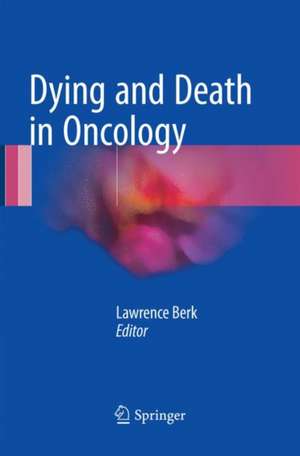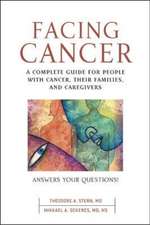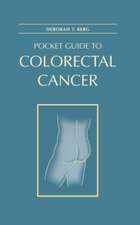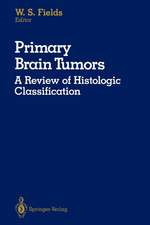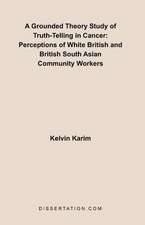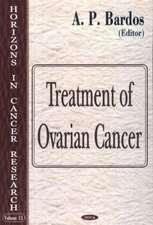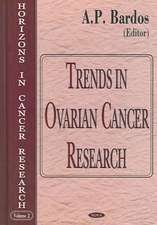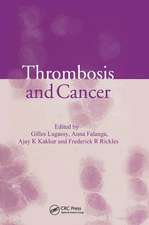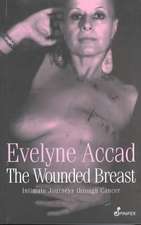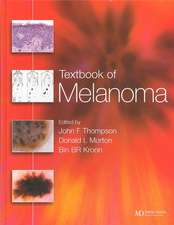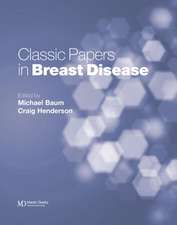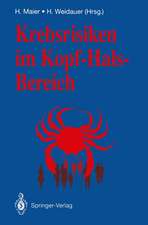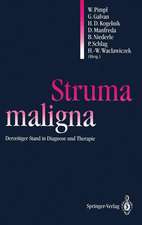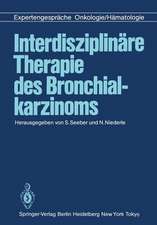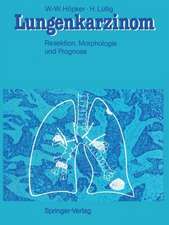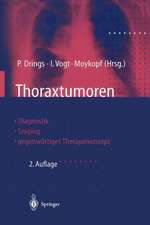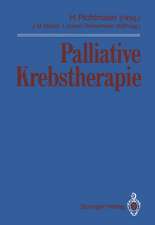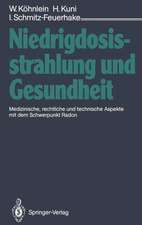Dying and Death in Oncology
Editat de Lawrence Berken Limba Engleză Paperback – 23 iun 2018
| Toate formatele și edițiile | Preț | Express |
|---|---|---|
| Paperback (1) | 331.71 lei 38-44 zile | |
| Springer International Publishing – 23 iun 2018 | 331.71 lei 38-44 zile | |
| Hardback (1) | 372.38 lei 3-5 săpt. | |
| Springer International Publishing – 24 oct 2016 | 372.38 lei 3-5 săpt. |
Preț: 331.71 lei
Preț vechi: 349.17 lei
-5% Nou
Puncte Express: 498
Preț estimativ în valută:
63.47€ • 66.44$ • 52.83£
63.47€ • 66.44$ • 52.83£
Carte tipărită la comandă
Livrare economică 27 martie-02 aprilie
Preluare comenzi: 021 569.72.76
Specificații
ISBN-13: 9783319824499
ISBN-10: 331982449X
Pagini: 185
Ilustrații: V, 185 p. 12 illus., 6 illus. in color.
Dimensiuni: 155 x 235 mm
Ediția:Softcover reprint of the original 1st ed. 2017
Editura: Springer International Publishing
Colecția Springer
Locul publicării:Cham, Switzerland
ISBN-10: 331982449X
Pagini: 185
Ilustrații: V, 185 p. 12 illus., 6 illus. in color.
Dimensiuni: 155 x 235 mm
Ediția:Softcover reprint of the original 1st ed. 2017
Editura: Springer International Publishing
Colecția Springer
Locul publicării:Cham, Switzerland
Cuprins
Introduction to Oncologic Thanatology.- Pathophysiology of Death.- Common Causes of Death of Cancer Patients.- Definitions of Death- Historical and Current.- Ethics of Death.- Economics of Death.- Legal Aspects of Death.- Predicting death.- Medical Care of the Dying Patient.- Spiritual Care of the Dying Patient.- Communicating with the Dying Patient and Family.- Bereavement – Death and the Survivors.- The Afterlife – Common Religious Representations of Life After Death.
Notă biografică
Lawrence Berk, a radiation oncologist, completed a PhD in Physical Chemistry from Yale University studying the high field conductivity of aqueous solutions and then researched batteries and fuel cells for Westinghouse Electric Corporation. He then studied medicine at the University of Pittsburgh and completed his residency in radiation oncology at the University of Pennsylvania. He has worked in private practice and in academics, and he is currently Professor and Chief of Radiation Oncology at the Morsani School of Medicine of the University of South Florida. His research has been in palliative care and symptom management. He has led national trials studying brain metastases, cancer cachexia and radiation esophagitis.
Dr. Berk is board certified in both Radiation Oncology and Palliative Medicine. He has previously served as Vice Chair of the US National Cancer Institute-funded cooperative research organization the Radiation Therapy Oncology Group and as the Chair of the Symptom Management Committee of the Radiation Therapy Oncology Group. He also served on the National Cancer Institute’s PDQ Board for Complementary and Alternative Medicine. He has published numerous articles in areas ranging from the polio vaccine trials in 1935, to the epidemiology of toilet training and to preventing side effects of radiation therapy and the palliative treatment of cancer patients.
Dr. Berk is board certified in both Radiation Oncology and Palliative Medicine. He has previously served as Vice Chair of the US National Cancer Institute-funded cooperative research organization the Radiation Therapy Oncology Group and as the Chair of the Symptom Management Committee of the Radiation Therapy Oncology Group. He also served on the National Cancer Institute’s PDQ Board for Complementary and Alternative Medicine. He has published numerous articles in areas ranging from the polio vaccine trials in 1935, to the epidemiology of toilet training and to preventing side effects of radiation therapy and the palliative treatment of cancer patients.
Textul de pe ultima copertă
This book brings together in one volume many important topics about death and dying, including the pathophysiology of death, the causes of death among cancer patients, the ethics of death, the legal aspects of death for the physician and for the patient and caregivers, the economics of death, the medical management of the dying patient, including pain and dyspnea, the prediction of death, and the spiritual management of the dying patient. It also discusses other medical and humanistic aspects of death and dying, such as the historical definition of death and various cultures’ and religions’ viewpoints on death and the afterlife. Everybody, including every patient with cancer, will die, and every physician will have to assist dying patients. Oncologists face this prospect more often than many physicians. And yet to date there has been no comprehensive textbook on Thanatology, the academic discipline studying death and dying, to assist oncologists in this difficult task. This book will help the physician to understand his or her own relationship with death and to communicate about death and dying with the patient and the patient’s caregivers.
Caracteristici
Offers comprehensive coverage of issues relating to death and dying, especially as they affect cancer patients Enables physicians to assist dying patients and their caregivers Includes coverage of legal, economic, and humanistic, as well as medical, aspects
